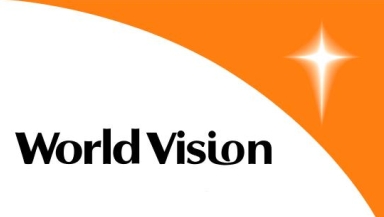
World Vision USA says it has made changes to its vetting process after a probe by the US Senate Finance Committee into its ties with an organization in Sudan that funded terrorism.
The investigation by the US Senate Finance Committee focused on the non-profit's decision to fund and work with the Islamic Relief Agency (ISRA).
In a report released December 23, the committee said that World Vision had been "borderline negligent" in working with the group.
Although it acknowledged that the funds given by World Vision were probably not used to fund terrorism directly, its funding of ISRA "inevitably aids their terrorist activities," the report said.
The Senate probe was launched after a 2018 report by the Middle East Forum into World Vision's relationship with ISRA, a group that has been sanctioned by the US since 2004 over its funding of terrorist activities, including those of Osama bin Laden.
Following the launch of the probe, World Vision said in a 2018 statement that its grant proposal clearly listing ISRA as a proposed sub-grantee had been approved by USAID (the US Agency for International Development) without any concerns being raised.
"At the time of selection, there was no indication that [ISRA] had any possible ties to an alleged terrorist-supporting organisation," it said.
World Vision further argued that it had checked the database of sanctioned groups at OFAC (the Office of Foreign Assets Control), the office of the US Treasury charged with imposing sanctions, but that ISRA's status as a sanctioned entity was not clear.
After several requests for clarification of ISRA's status, the Treasury informed World Vision on January 23, 2015, that the group was indeed a sanctioned entity and World Vision subsequently severed ties.
The Senate report, compiled by Senator Chuck Grassley, said there was no evidence that World Vision had intentionally sought to circumvent US sanctions by partnering with ISRA.
"We also found no evidence that World Vision knew that ISRA was a sanctioned entity prior to receiving notice from Treasury," it said.
But it concluded that, based on the evidence provided, World Vision "had access to the appropriate public information and should have known how, but failed to, properly vet ISRA as a sub-grantee, resulting in the transfer of US taxpayer dollars to an organization with an extensive history of supporting terrorist organization and terrorists, including Osama Bin Laden."
It continued: "Our review demonstrates this failure occurred because World Vision's system for vetting prospective sub-grantees was borderline negligent and ignored elementary level investigative procedures, such as failing to conduct basic secondary research that is widely available to the public on the internet via free search engines.
"We arrive at these conclusions based on strong evidence that ISRA's status was easily searchable, and Treasury provided appropriate resources to assist organizations in identifying sanctioned entities."
The report did note, however, that World Vision has made a number of positive changes to its vetting process in response to the incident, including creating additional screening methods, implementing 'blocked party screening' training, and adding several new countries to its list of places requiring mandatory country-level screening.
The report acknowledged the improvements but still concluded that a "more robust and fundamentally sound system of screening and vetting is needed to restore the public's trust that contributions made to World Vision are not funding illicit organizations."
"Moreover, although we find no reason to doubt World Vision's assertion that the funds in their entirety were used by ISRA for humanitarian purposes, that money inevitably aids their terrorist activities," it said.
Senator Chuck Grassley, who oversaw the Senate probe, welcomed the changes implemented by World Vision.
"World Vision works to help people in need across the world, and that work is admirable. Though it may not have known that ISRA was on the sanctions list or that it was listed because of its affiliation with terrorism, it should have," he said.
"Ignorance can't suffice as an excuse. World Vision's changes in vetting practices are a good first step, and I look forward to its continued progress."
Responding to the report, World Vision USA spokeswoman Sheryl Watkins told The Christian Post in a statement: "World Vision is ... pleased that the committee staff's report praised the changes we have made to our vetting process.
"And we also take seriously the committee staff's recommendations to continue to examine other opportunities to improve the effectiveness of our blocked parties screening processes."













